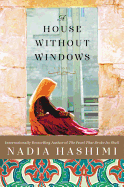
Through the heartrending stories of her fellow inmates, Zeba comes to appreciate that "a woman's worth was measured, with scientific diligence, in blood. A woman was only as good as the drops that fell on her wedding night, the ounces she bled with the turns of the moon, and the small river she shed giving her husband children. Some women were judged most ultimately, having their veins emptied to atone for their sins or for the sins of others."
Defending Zeba is Yusuf, a young Afghan émigré lawyer who has returned to help rebuild the country. While Yusuf could have become a Western cliché, he is written with depth and motivation. Through both Zeba's and Yusuf's perspectives, there is much empathy in this exploration of a rapidly changing land torn between tradition and modernization, between the mores of graybeards and laws of a new constitution.
Minor weaknesses creep in as the novel concludes, including an almost unbelievable coincidence. Nevertheless, the emotional payoff, crisp writing and nuanced protagonists more than compensate. --Evan M. Anderson, collection development librarian, Kirkendall Public Library, Ankeny, Iowa.

